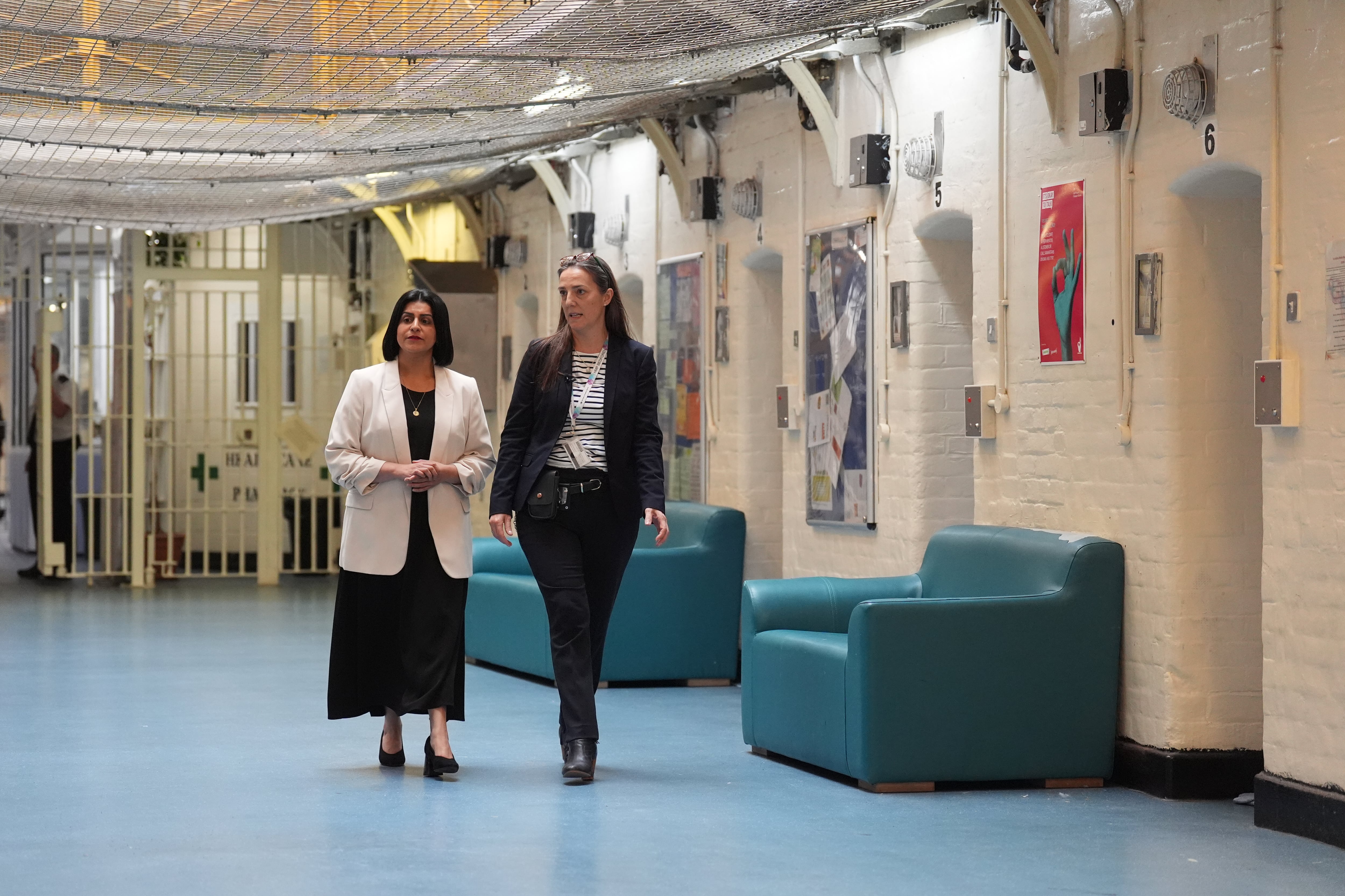
Keir Starmer, the British Prime Minister, inherited prisons that were about to overflow due to a lack of cells. It was the consequence of decades of obsession by British Conservatives and Labor with offering a tough-on-crime image. Judges sent them to prison with sentences of just six months. The British Government released another 1,100 inmates this Tuesday, adding to the 1,700 which he already released in September. All of them, in theory, had already been locked up for more than five years and had served 40% of their sentence. And none were responsible for violent crimes, sexual assaults or terrorism.
But to lessen the uncomfortable feeling that such a decision produces among citizens, the Minister of Justice, Shabana Mahmood, wanted the new batch of releases to be accompanied by the announcement of a thorough review of the penal system. which will be led by the former conservative minister, David Gauke.
“I believe in punishment. And I believe in prison sentences. But I also think we need to increase the variety of punishments we use. And those prisoners who have earned the right to turn their lives around should be encouraged to do so,” the minister defended when presenting her reform project.
As of this Tuesday, the United Kingdom has 87,465 inmates in its prisons. 1,671 places are available. But the number of those who enter each year is approximately 4,500 people. The Government faces a race against time with an impossible solution without drastic responses.
The early release plan launched by the Starmer Government proposes that 5,500 inmates go out onto the streets. But in this second phase prudence has prevailed. In September, almost 40 convicted of mistreatment, and many repeat offenders, were released by mistake. The police had to quickly notify their victims and in many cases re-arrest those released.
This Tuesday’s shipment comes mainly from the so-called “open prisons”, a level of installation for prisoners in the rehabilitation phase, where they enjoy greater autonomy.
The previous Conservative Government of Rishi Sunak also considered the early release of thousands of prisoners, to relieve pressure. But the fear of electoral punishment of their voters it kept the ball rolling forward, until the new Downing Street team had to take on the unpopular decision. The conservative tabloid press, but also television stations such as the BBC, rushed to show the image of the departure of some of the prisoners released in September, who were sprayed with champagne by their family and friends.
“Crime and punishment” in the 21st century
The Labor Government has promised to build 14,000 new cells, but also wants to launch a major review of the penal system, and has entrusted that job to former Conservative Justice Minister David Gauke. He is a moderate politician who, since He left the ranks of his party irritated by Brexit and the populist drift of the tories, ha fought with little success to return his formation to the center space.
Since 2019 he has been defending the need to carry out a thorough review of the British penal system. “It is clear that our prison system does not work,” Gauke said when announcing the commission he will preside over. “The prison population increases every year by about 4,500 people, and 90% of those who enter are repeat offenders. With this review we want to explore what punishment and rehabilitation consist of in the 21st century.”
The commission will not present its report until next spring, but the Ministry of Justice has already outlined some of the initiatives and proposals it will take into consideration. Judges, for example, could be given greater powers allowing them to impose house arrest instead of a prison sentence. The use of electronic monitoring bracelets would allow convicts to expand their freedom of movement, allowing them to work and attend rehabilitation or detoxification sessions at the same time.
The Government is also studying the use of applications on the mobile phone or smart watch that would serve as an alarm or warning to the inmate, to notify him when he must attend his usual appointment with the officer assigned to his case and in charge of his custody.
But, above all, the commission must carefully outline the cases in which it is possible to avoid prison, when the sentence is six months or less. “Why do we have to spend taxpayer money on something that doesn’t work, on something that, in fact, reduces our security?” Gauke asked in 2019, after noting that a quarter of a million of those convicted in the five Previous years they had been so for less than half a year, and two thirds of them had reoffended.
In Spain, the Penal Code allows judges to suspend the entry into prison of a person sentenced to a sentence of no more than two years “when it is reasonable to expect that the execution of the sentence will not be necessary to avoid the future commission by the convicted person of new crimes.”

